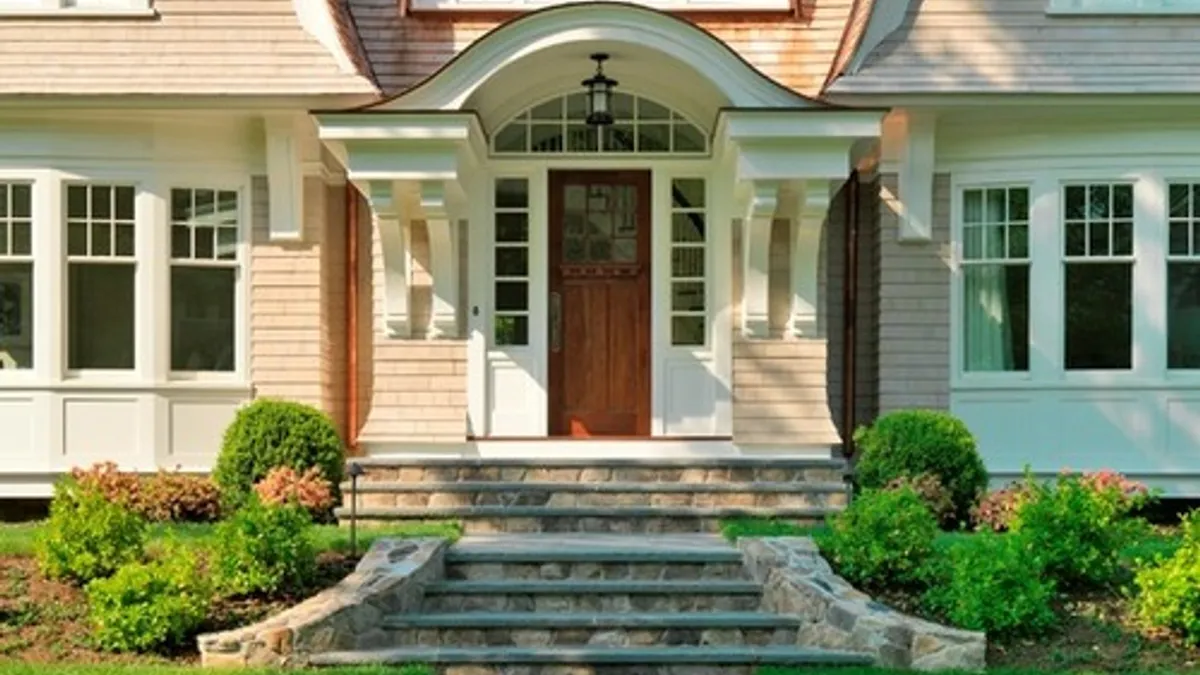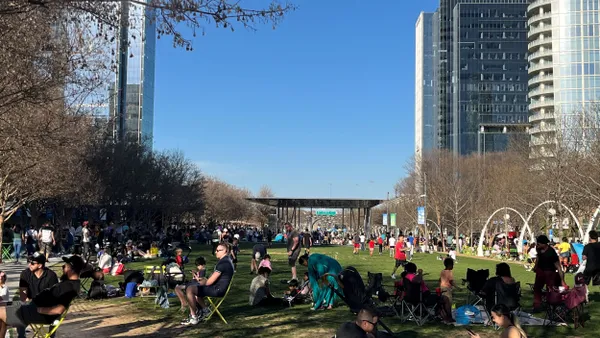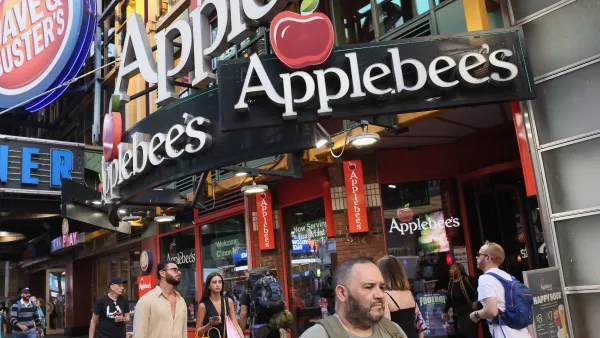Dive Brief:
- Chicago is launching another round of selling city-owned blighted and vacant properties for $1, according to Curbed Chicago. Although all of the land parcels are zoned as residential, they can be used for purposes other than housing, such as yard expansion or gardens.
- Chicago Mayor Rahm Emanuel introduced an ordinance to allow 952 properties to be sold. The city's planning commission still has to review the ordinance.
- Residents must meet certain criteria to purchase a $1 lot, such as being up-to-date on property taxes, having no outstanding financial obligations with the city and already owning property on that same block.
Dive Insight:
Chicago launched its Large Lots program as a pilot in 2014, and the success prompted it to open subsequent rounds of sales over the past three years; the announcement from Emanuel's office about making 952 additional properties available begins the seventh round. The program aims to efficiently get rid of some city-owned land in neighborhoods with significant blight, which puts the properties back on the city's tax rolls. That could give Chicago a financial boost, which is widely viewed as necessary in light of Chicago Public Schools and the state of Illinois both flirting with bankruptcy. Plus, Emanuel confirmed further fiscal difficulties when he recently made a controversial announcement about raising property taxes to fund a public school teachers' pension hole.
Besides aiding the city's financial situation, the Large Lots program's main goal is to benefit residents by improving neighborhoods. The requirement that the vacant lots are sold to people who already own property on the same block allows residents to have greater control over what happens to the land in their neighborhoods. Local residents also can reap financial benefits because they can sell that land after the mandatory five-year ownership period. Some benefits of these neighborhood-level investments, according to the city, are higher home values, a greater sense of community and increased safety.
The Large Lots program is one of the initiatives included in Emanuel's 2014-2018 "Five-Year Housing Plan." The plan encourages taking fresh approaches to rebuilding the city's housing market following the national housing crisis, as well as Chicago's own foreclosure crisis and dramatic population decline between 2000 and 2010. The Five-Year Housing Plan prioritizes engaging with new partners — including private owners, developers and non-profit organizations — to maximize its impact. It also points to the newer strategy of relying on a neighborhood-level approach, which recognizes that the city's housing markets differ based on neighborhood conditions and local incomes. That allows city officials to focus on what each area needs most in terms of housing. In weak or transitional markets, for example, the goal is to increase demand and boost housing value, while the strongest markets have a need for additional affordable housing.
The Five-Year Housing Plan acknowledges that housing markets do not operate in silos, but rather they go hand-in-hand with economic growth. Increasing the number of residents in a neighborhood creates more demand for goods and services, which in turn boosts development and job markets. Targeted investments — such as the $1 property sales — thus can lead to an overall quality-of-life improvement in struggling communities, which itself creates more demand for that neighborhood. The plan suggests that its recommended strategies for housing market transformation also could boost Chicago's home-ownership rate, which dropped to 44.2% in 2011.












